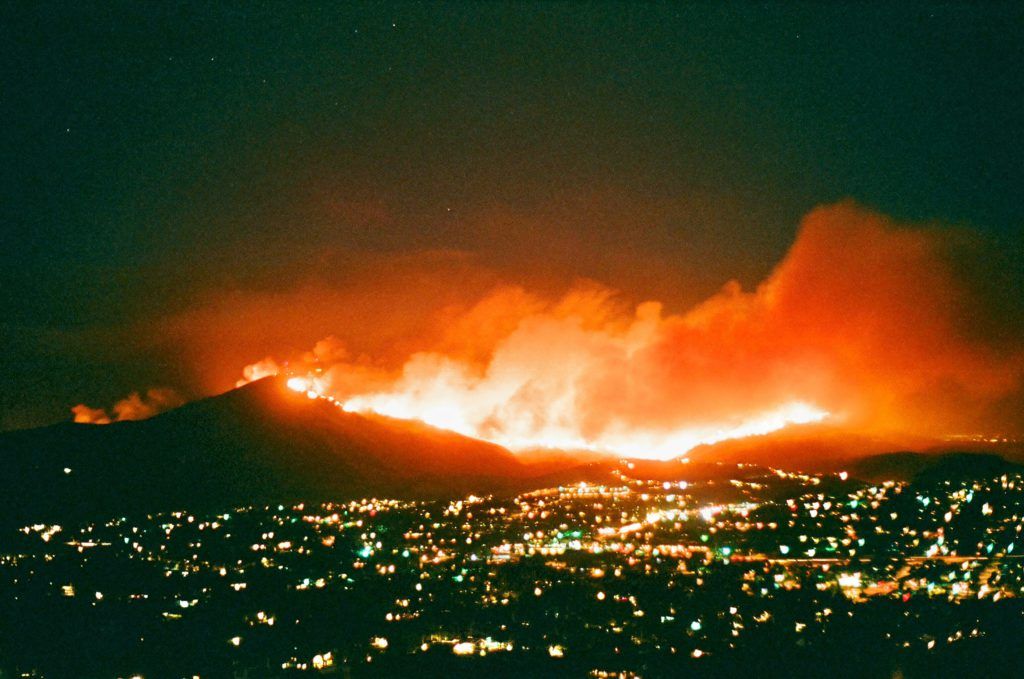Fire insurance renewal mandate worries insurers, experts

California Insurance Commissioner Ricardo Lara’s recent decision to put a one-year moratorium on insurance companies refusing to renew policies on homes in areas adjacent to recent devastating wildfires has garnered widely mixed reaction.
Lara’s decision ensures roughly 800,000 homeowners can have policies renewed. It’s allowed under Senate Bill 824, which Lara shepherded to passage in 2018 while a state senator representing Bell Gardens. An estimated 350,000 policies had not been renewed in California since the beginning of 2015.
“This wildfire insurance crisis has been years in the making, but it is an emergency we must deal with now if we are going to keep the California dream of homeownership from becoming the California nightmare,” Lara said in a statement.
Lara has won praise from consumer advocates who say insurers are too quick to cancel policies held by homeowners who have dutifully paid premiums for years without ever filing claims. He’s also gotten kudos for his November decision to expand the state-overseen FAIR program, which is run by a pool of insurers and provides bare-bones insurance to homeowners otherwise unable to get policies. Beginning in April, FAIR is supposed to offer plans that cover $3 million in damages, up from the present $1.5 million.
But an analysis by The New York Times suggests that Lara has misjudged the risk that insurers face in an era of hotter, drier weather and that the industry could be on the road to ruin. It noted that the $20 billion that insurers offering policies in the state lost because of devastating wildfires in 2017 and 2018 “wiped out a full quarter-century of the industry’s profits” from California operations, according to the Milliman consulting firm.
Lara told the Times that all he was doing was “hitting the pause button on non-renewals” to stabilize the home insurance market and let insurers and regulators catch their breath and carefully evaluate future steps.
Parallels seen to Hurricane Andrew, Northridge earthquake
But Milliman actuary Eric Xu compared the massive losses suffered by insurers since 2017 to the aftermath of Hurricane Andrew in Florida in 1992, when insurers lost a similar amount and about a dozen went bankrupt.
Karl Susman, owner of a Los Angeles-based insurance agency, told the Associated Press that the present crisis reminded him of the fallout from the Northridge earthquake in 1994, which led many insurers to either stop renewing earthquake insurance policies or to get out of the field entirely. He questioned whether the historic model of home insurance was “sustainable” in California, given fire risks.
Home insurers in the state requested about 80 rate hikes in 2018, far more than the norm. But the hikes are generally rejected unless it can be established that they are needed because of demonstrated risk – not the higher risks that insurance actuaries expect because of a hotter climate.
“That works, until it doesn’t,” Rex Frazier, president of the Personal Insurance Federation of California, an insurers’ trade association, told the New York Times. He questioned how the industry could survive unless it was allowed to factor in future risks.
Insurers have grumbled but otherwise taken no formal steps to challenge Lara’s moratorium on non-renewals, which is in effect until Dec. 5, 2020.
But the insurance companies which pool to provide the FAIR “insurance of last resort” program are openly defying Lara. FAIR officials were supposed to provide an operational plan by Dec. 14 of how they would expand the program and increase coverage limits, as the insurance commissioner had ordered. Instead, they sued Lara just before the deadline, saying he had grossly overstepped his authority.
Chris Reed
Chris Reed is a regular contributor to Cal Watchdog. Reed is an editorial writer for U-T San Diego. Before joining the U-T in July 2005, he was the opinion-page columns editor and wrote the featured weekly Unspin column for The Orange County Register. Reed was on the national board of the Association of Opinion Page Editors from 2003-2005. From 2000 to 2005, Reed made more than 100 appearances as a featured news analyst on Los Angeles-area National Public Radio affiliate KPCC-FM. From 1990 to 1998, Reed was an editor, metro columnist and film critic at the Inland Valley Daily Bulletin in Ontario. Reed has a political science degree from the University of Hawaii (Hilo campus), where he edited the student newspaper, the Vulcan News, his senior year. He is on Twitter: @chrisreed99.
Related Articles
Federal appeals court protects CA medical marijuana use
This November, California voters will vote on Proposition 64 and decide whether their state should become the third after Colorado
Dem Legislature passes more tax cuts
Who said California Democrats oppose tax cuts? They long have supported tax cuts for their pals in Hollywood. Now the
Medi-Cal Exec Grabs $515 K Salary
John Seiler: The head of Orange County’s Medi-Cal socialized medicine program makes a whopping $515,743 salary, the Orange County Register




